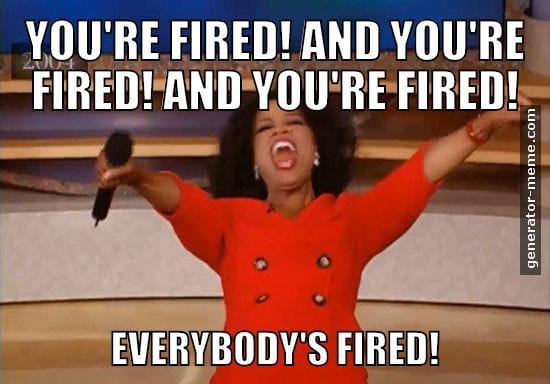To disclose, or not to disclose: Striking the right balance when making a case for your business

As promised in Navigating The Catch-22: Successfully Fundraising For Your Business, this segment discusses, in detail, the nuts and bolts of confidentiality agreements. Also referred to as Non-disclosure Agreement (NDA), the NDA keeps certain aspects of what an entrepreneur will discuss or disclose with a potential investor a secret. While an NDA is an important document that helps protect your new venture’s confidential information, entrepreneurs should endeavour to strike the right balance between protecting their business secrets and sharing relevant information with potential investors to attract capital or other resources. 1. Timing is everything: Relationships come first Indeed, the know-hows of your new venture might necessitate the execution of a NDA. However, this does not mean that you should walk into a potential investor’s office for the first time offering a NDA as a substitute for a handshake. This singular act may, in fact, be counterproductive as it may scare away savvy investors! The use of the words “scare away” is intentional. Indeed, this choice of words begs the question, “Why would a potential investor be reluctant to sign an NDA, if they do not intend to breach the agreement?” A few answers are listed below: Most potential investors sit on numerous pitch competition boards. They encounter numerous entrepreneurs in their professional lives and are often asked to sign NDAs. Consequently, your NDA may be number 500 on the request list. As such, a potential investor’s reluctance to sign your NDA may not be because they intend to disclose your trade secrets, rather, it may be due to the practicality of keeping track of thousands of NDAs that they receive. From a practical standpoint, it gets really challenging to track thousands of NDAs especially where entrepreneurs submit pitch decks with similar ideas. Investors are not only attracted to an idea but to other factors such as your team, track record, probability of success etc. Given that NDAs are important legal documents, investors will often want their lawyers to review these documents before they sign. This costs time and money—two things that have huge opportunity costs for an investor. Notwithstanding, if you are concerned about a potential investor’s ability to protect your confidential information, you should vet them. This can be easily done by utilizing your networks to find out more about a potential investor. If you are not satisfied with the results of your due diligence, then consider safeguarding your proprietary information. You have to strike the right balance between keeping your business know-hows a secret and attracting investors. The free flow of ideas is an important factor in further developing your product and raising capital. However, you do not need to disclose every minute detail of your business to an investor if you do not feel comfortable doing so. 2. Practical consideration when reviewing an NDA When you get to the NDA stage, it is imperative that you carefully review the NDA, negotiate the terms, and participate in the drafting process. If there are provisions you do not understand in the NDA, don’t feel embarrassed asking about the intent of that provision. Below are a few items you should consider when negotiating your NDA: Ensure that the party that signs the NDA has the authority to do so. Check to make sure that individual is an authorized officer of the company. Ensure that the NDA details what the word “confidentiality” means. If the definition is too broad and contains everything under the sun, you might get a lot of push back from your potential investors. So, be practical about the scope of the definition! In the same light, your NDA should clearly explain what doesn’t constitute confidential information. Remember, exceptions are equally as important as inclusions. The NDA should also detail the manner of the disclosure that will be kept confidential. For example, will both parties treat oral disclosures as confidential information? It is also important that you carefully think through your negotiation strategy during the NDA drafting phase and that you negotiate from a practical perspective. Spending too little negotiating a NDA might create an impression that you are not a savvy businesswoman. This perception may hurt your negotiating power with your potential business partner in the long run. On the other hand, overly negotiating a NDA might make you appear as one who might be difficult to work with. It is essential that you find the right middle ground. As a general rule of thumb, entrepreneurs should not negotiate past three drafts. More drafts may be required for an extremely complex project. Treat the NDA negotiations as a pre-investment negotiation interview. During this stage, your potential investors are just getting to know you. This is your opportunity to show them that you are savvy businesswomen with excellent negotiation skills. During the drafting phase, be cognizant of who will have access to the confidential information. Will all employees have access to the information? What third parties will have access to the information? All these considerations are important as they let you know the individuals that will be privileged to the information you have provided. Your NDA should also list each party’s responsibilities or burdens. Ensure that the NDA contains remedies that are reasonable. Most importantly, research your potential investors or business partners to ensure that the individual or firm is a reputable and fair player in the market. To summarize, it is imperative that you carefully consider the timing of requesting an NDA. When it becomes necessary to execute a NDA, carefully negotiate your NDA and ensure that you understand every word on the agreement before you sign on those dotted lines. In the next segment, we will discuss the art of successful negotiation. If you would like insights on a particular topic, write to us! We are listening.
Navigating the catch-22: Successfully fundraising for your business

Once you have successfully registered your new venture and executed your partnership agreements, the next phase is getting your new venture up and running. For some, this might not be an issue as you probably have sufficient savings and contributions from family and friends to commence this new venture. For others, the fundraising process begins! Fundraising is not a task for the faint hearted, as it requires a high dose of patience, perseverance, tolerance, and politeness. However, while the fundraising process might require a heightened tolerance for frustration, it is imperative that you think beyond the fundraising process. For example, you should not accept a potential investor’s offer simply because that investor has agreed to give you all the funds you need to scale your new venture without thinking through the possible impact that potential investor may have on your new venture or ownership structure. This segment details some important points that you should consider during your fundraising process. 1. Don’t let the cat out of the bag prematurely During the fundraising process potential investors will ask you to share information about your new venture so that they can make an informed decision on whether or not they can provide you with the funds you require. Indeed, you have to furnish them with some of the information they seek. Nonetheless, it is important you strike the right balance between your fundraising needs and safeguarding your new venture’s confidential information. You have worked hard to develop your new venture and create a niche for yourself, as such, while you may be in desperate need to fundraise, you should also think beyond the fundraising phase by safeguarding your new confidential information. Moreover, of what use will the funds raised be if at the end of the fundraising process your new venture’s secrets has been disclosed to potential competitors who are now offering the same exact product you wanted to offer? You owe it to yourself and your new venture to protect your new ventures’ confidential information such as the “know-hows” of your new venture, the trade secrets, and all other information that makes your new venture unique. Thus, before you commence deep discussions about your new venture with a prospective investor, it is imperative that you sign a non-disclosure agreement (even if that prospective investor is a friend!). Your non-disclosure agreement should: (i) be executed by all parties that you want to be bound by the agreement, (ii) identify the right legal entities and/or individuals that are intended to be bound while also indicating that representatives and affiliates will be bound, (iii) provide remedy in the event of breach, (iv) include a definition of what constitutes confidential information, (v) address the term of the non-disclosure agreement and what happens at the end of the term, i.e. whether the investor has to return the confidential information to you or destroy it. Indeed, executing a robust non-disclosure agreement with an investor does not prevent such investor from breaching the agreement. As such, protect your new venture by taking the extra step of researching each potential investor to ensure that such investor is a respected and professional player in the market. 2. Think carefully, pick selectively You must carefully select an investor. Yes, the order of the previous sentence is intentional! In a world where financing is not infinite, entrepreneurs often feel very lucky to find an investor who is willing to invest in their business. While the feeling of immerse gratitude is not misplaced, it is imperative that entrepreneurs also carefully select their investor. Do your due diligence on your potential investors! Remember, an investor’s investment is never “free”! It often comes with numerous strings attached. Oftentimes, these strings are good strings in that they bring value to the new venture. For example, the investor may require you to adopt environmental, social, and governance policies, or anti-money laundering policies. Such requirements are valuable additions as such changes could translate to higher returns for your new venture. As such, before signing those dotted lines, entrepreneurs should consider the investor’s track record and reputation in the industry, the investor’s proposed economic rights and governance rights and whether such economic rights are proportional to the investor’s proposed investment, the factors the investor considered in arriving at its valuation. Think of your investors as long-time business partners—you may be married to them for a long time. So, think carefully and pick selectively! 3. Don’t jump to the finish line So you are extremely excited that you have selected the right potential investor and strongly believe that the potential investor will invest in your new venture within a few months. Indeed, you trust your intuition on this because your intuition always leads you to the right path. As such, you believe that the next logical step is to email all your new venture agreements (shareholders’ agreements, share purchase agreements etc.) to the potential investor while they conduct their final review process so as to streamline the process. Please Don’t! Wait until you hear from your potential investor that they have decided to strike out “potential” from the words “potential investors.” There is no point jumping to the finish line and investing resources by drafting agreements that may not be eventually utilized. Moreover, your investors might have a preference for providing the definitive agreements. To summarize, the fundraising process is not a task for the faint-hearted. While you may have an urgent need for working capital, you should also ensure that you safeguard your new venture throughout the process. The success of your new venture also rests on your ability to protect your new venture’s confidential information. In the next segment, we will discuss the non-disclosure agreement in detail. If you would like insights on a particular topic, write to us! We are listening.
10 things I learned about pitching to an investor

She Leads Africa recently had a free webinar session with Andrea Barrica on the fundamentals of pitching your business – The Do’s and Oh No She Didn’t of Investor Pitching. Andrea Barrica is a Venture Partner at 500 Startups, a global seed fund and accelerator for early stage startups based in Silicon Valley. She was previously co-founder at inDinero, an accounting and taxes software solution where she led the team to the first $1M in sales in 10 months. Here are ten things we learned from her. 1. Don’t try to pitch to all investors Most of the interactions that you have with investors are not investor pitches. Most of the interactions that you have with investors are about how you can get the right type of investor who wants to hear about your company and is willing to hear about your pitch. When you have an investor who is interested, it is then time to have the investor pitch. 2. Differentiate yourself, be clear, and don’t overly pitch Create a level of personal connection. People invest in people they like. Make it a conversation (never corner someone in a party). Keep it brief, and tell your story in 60 seconds or less. Understanding the market and asking questions and advice versus pitching the business is a great way to get investors interested. Be natural, authentic, and humble. 3. If you do not have an idea, investors will not be willing to invest Support your idea, prove it out Wait until you have traction and a great team Wait until you really need the money. However, when you really need the money the most, the investor has all of the leverage versus having a great team and traction without the desperation. 4. Use your resources, networks, and community to find investors Meet people — It’s better to meet investors when you’re not fundraising Standard networking — get introductions from other investors Go where investors hang out and then find the ones that you respect Write — start writing your own blog and content The key is running your business—it is important to build, go out there and get some traction. The first investors will be family and those you are close to. 5. When meeting investors, know who is going to be there, and how many people—know your audience! The important thing to know about a meeting is that, no one is as interested in you as you think they are. You must be brief. Think about how to you make your presentation interesting. How will you make it unique? 6. If you want to stand out, work the room, run the meeting, tell a story Make a personal connection, research the people in your room. Don’t make it to feel robotic; not too many slides. If people ask questions at the end and if what you presented was clear, that means that they are interested. Don’t leave asking: are you interested? Rather leave with: will you be willing in investing; how much will you be willing to invest? 7. The don’ts Pitching is a conflict between what we say, what we mean to say, and what the person actually hears. What we say and what we mean to say is not what the investors hear. Don’t: Create slides first This is a bad way to start a presentation. So don’t rely too much on your decks and your slides. Don’t: Be A 1 pitch pony. Don’t only have one pitch prepared Have more than one prepared. Prepare for the different types of investors and what they may care about most. Don’t: Forget the 20:1 rule For every one minute of a presentation, practice out loud. Make sure the delivery and confidence is there. 8. The do’s Do: Tell a strategic story Tell a story that will help the listener understand something about your story that they didn’t before. How does my story help me to achieve my goal? It is important to ground out the things that you want people to know about you in short stories. Do: Know your secret sauce How will you win when everyone else fails? It is your differentiation. Do: Know what is the most compelling thing about your business Use this cheat sheet: Traction Team- past experience and your background Product Vision Do: Pass the 60 seconds test You need to get someone interested about your company in 60 seconds, no matter what industry you are in. 9. If you want to get in touch with foreign investors, build a great business They will reach out to you. Make sure people know you. How so? Support local organizations. What are you doing? What problem are you solving? How do you understand the market? 10. You close deals A great pitch deck and a horrible pitch won’t do anything for you. So how can you improve? Get together a small group of other young entrepreneurs and force yourself to practice consistently. Go out to new events and networking opportunities and keep pitching. You won’t get good unless you do it. Take improv classes or acting classes. Have a few friends video tape you pitching and talk about ways to improve with your friends. The only way that you will improve is by giving and getting brutal advice—patting each other on the back, will not help. Want to watch the full webinar? Check out the video below:
Five types of employees you want to fire immediately

We all have that one person in our squad or team that we could live without. They want the worst for you, but you want the best for them. You want a team as synchronized Travel Noire‘s, they want a mosh pit. You’re thinking savings, they’re thinking spending. In short, you two are on different pages. And so you fire them, which is what any reasonable person would do if they cared about saving their business venture. And if you have the below mentioned five employees on your team, please fire them all before they poison the well. 1. The Social Media Butterfly These are people who wake and sleep on social media. Give them a day to research five smoothie ingredients for a new flavour, and all they’ll come with are a bunch of IMDB tab sheets and a desktop background image of Idris Elba. 2. The Raver Everyone has a bad day, but that doesn’t mean we should scream like banshees at work. Home, yes. Work, no. No on wants to work with someone who stresses them all day, every day with strident remarks or caustic put-downs. 3. The Warlord These are career trouble makers, and all-around instigators. They’re ready to fight at the slightest perceived provocation, sowing seeds of discord in the office. If you dream of fostering a collaborative and friendly work environment, then caution them to cut it out, and if they don’t, give them the sack. 4. The Know-It-All Spews a never-ending stream of suggestions and unsolicited advice, but barely listens to second opinions nor take corrections. This kind of attitude breeds resentment and could spell trouble for your company if they’re their job requires them to liaise with clients. Encyclopedias are books, as in inanimate objects. So if your employee fancies themselves one, you have every right to be worried. And what do we do with worrisome employees? We fire them. That’s right, we fire them. 5. The Indecisive is afraid of mistakes and wants to run every full stop by you. They can’t take any initiative, and need constant reassurance and feedback. If you enjoy baby-sitting adults, keep them. If not, let them go or you’ll be doing their job and yours. Who else will you fire? Any personalities we didn’t mention? Care making a list?
